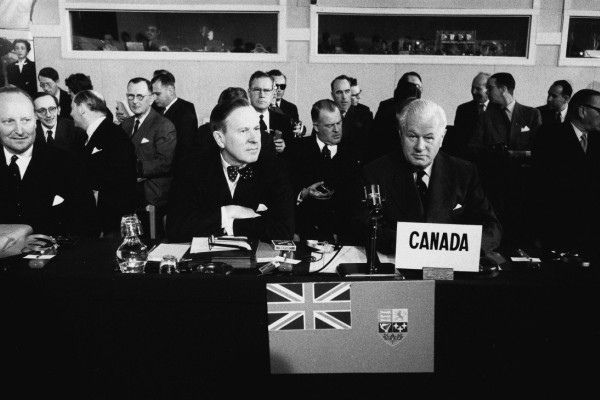-

At stake in Ukraine is the future of globalized capitalism
The war in Ukraine is only one phase of a world-wide conflict that began earlier. In international relations, the driving forces are often obscured by surface occurrences, such as immediate military events and the din of apologetic or denunciatory rhetoric. What is at stake in Ukraine is not Ukraine: it is the future of globalized, neoliberal, financialized, US-ruled capitalism.
-

Are we seeing the return of a multipolar world?
It’s becoming commonplace to suggest that a multipolar world order is emerging, one that will replace the US-dominated world system that has reined since the end of the Second World War and faced no serious challengers since the fall of the Soviet Union. As Greg Shupak writes, what is certain is that the old order will not fall without a great deal of struggle.
-

What worries the United States most about Lula
What has Washington actually most worried about Lula is the reemergence of a powerful non-aligned movement, writes Steve Ellner. The majority of the world’s population has not joined the sanctions regime against Russia and are gradually coalescing around an a new and emerging economic, financial and commercial system alternative to the West.
-

Does the US chip ban on China amount to a declaration of war in the computer age?
The US has gambled big in its latest sanctions on Chinese companies in the semiconductor industry, believing it can kneecap China and retain its global dominance. From the slogans of globalization and “free trade” of the neoliberal 1990s, Washington has reverted to good old technology denial regimes that the US and its allies followed during the Cold War.
-

Financial war and its discontents
It remains to be seen whether it is legally possible to confiscate and redistribute Russian funds. But even if it is, one may doubt whether it is wise. Little by little, such acts have the effect of sending a message that the international financial system is subservient to Western political interests, writes professor Paul Robinson.
-

Powell, Putin, and MBS are on the verge of throwing the entire world into depression
Jerome Powell, Vladimir Putin, and Mohammad Bin Salman are on the verge of throwing the entire world into a massive depression. Powell’s interest rate increases are compounded by the action taken by Russia and Saudi Arabia, leading the OPEC+ meeting in Vienna, to cut oil production by two million barrels a day. These two leaders of OPEC+ have a visceral hatred of both President Biden and democracy itself.
-

Central banks are applying ‘shock therapy’ to quell rising global inflation
Shock doctrine was the term used by Naomi Klein to describe the destruction of public services and the welfare state by governments from the 1980s. Now the major central banks are applying their own ‘shock therapy’ to the world economy, intent on driving up interest rates in order to control inflation, despite the growing evidence that this will lead to a global recession next year.
-

600 million metric tons of plastic may fill oceans by 2036 if we don’t act now
The OECD estimates that, under a “business-as-usual” scenario, plastic waste will triple globally by 2060. Until policymakers, voters, and consumers exercise their muscle to reduce plastic pollution at the source, the petrochemical industry will continue feeding the global plastic dependence regardless of the consequences for public health and planetary well-being.
-

BRICS: the powerful global alliance
Professor Richard Wolff discusses the powerful economic partnership of Brazil, Russia, India, China and South Africa (BRICS). “They are the engine of the world economy in a way that was once said of Western Europe, North America and Japan. The engine, the powerhouse, the growth mobile, all of that. That’s moved, friends. And it’s moved in large part to the BRICS.”
-

Lester Pearson at the World Bank
As the head of the World Bank’s committee to review and criticize the development goals of the Bretton Woods institutions, Lester Pearson had the opportunity to foreground an alternative form of Northern engagement with the South. Instead, he reaffirmed all the most harmful aspects of these institutions and argued for their greater involvement in the lives of people in Latin America, Africa, and Asia.



